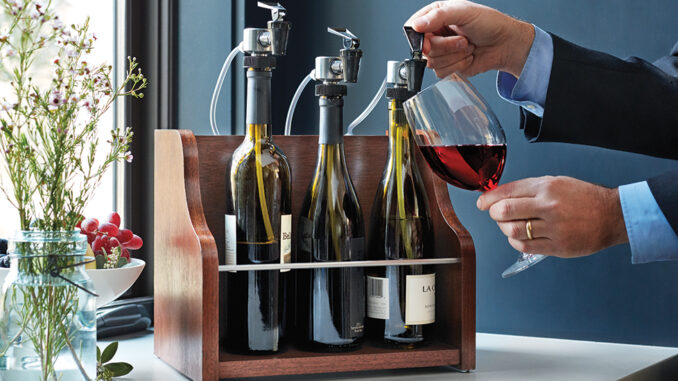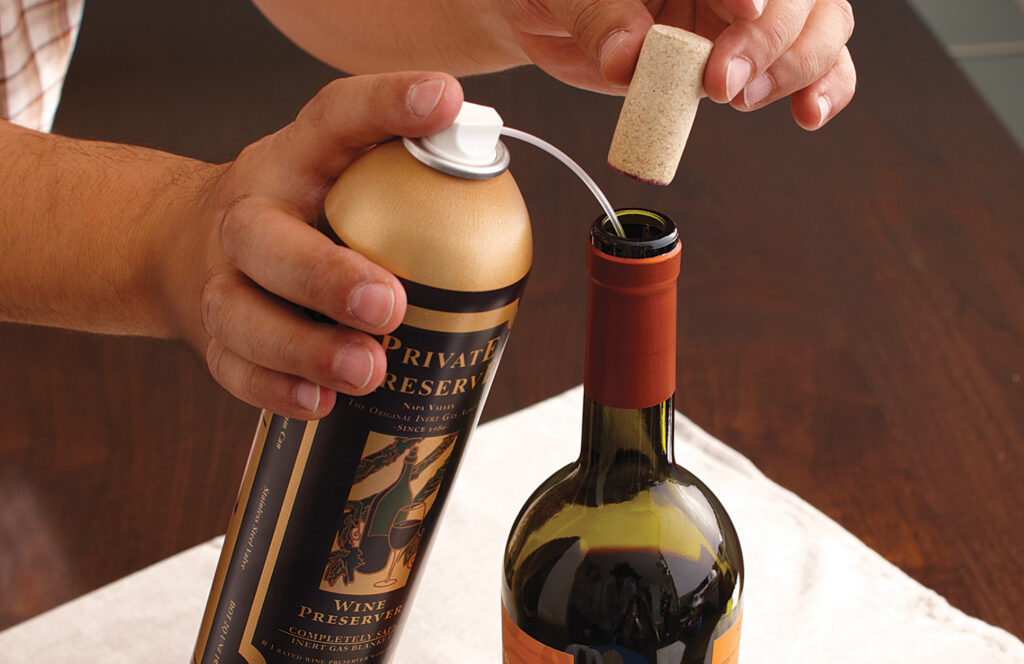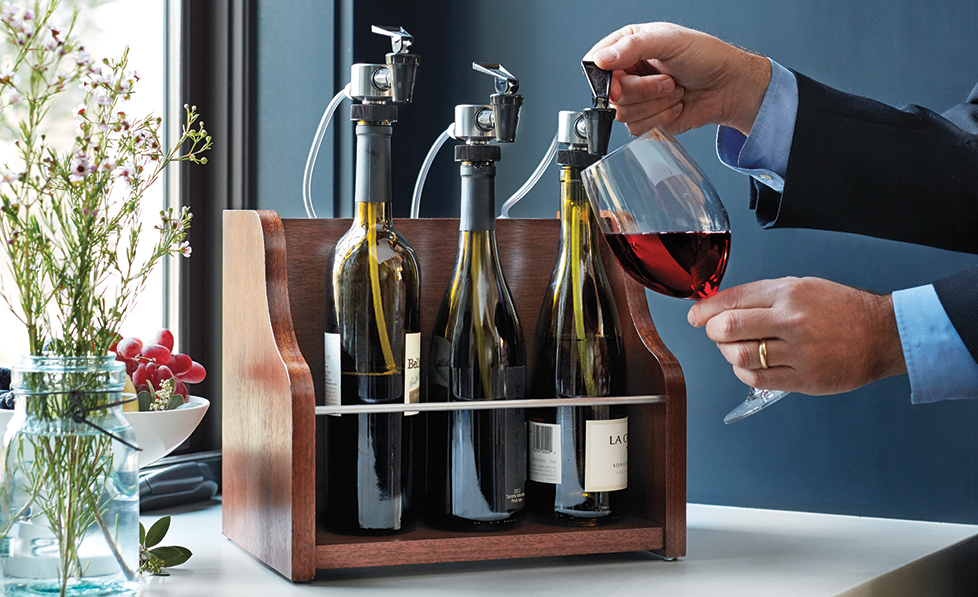
Maxwell House coffee has a legal foothold on the statement, “Good to the last drop,” but there are many wines that fit this decree as well. We want to extend the experience, and fully enjoy the bottle. There are ways to preserve wine and reasons why you can do so effectively.
Oxygen: Wine’s Nemesis
Oxygen is a threat to wine throughout the winemaking process, save for a few points during fermentation where oxygen at the right time can enhance resulting flavors, aromas and color. Once in the bottle or your glass, extensive exposure to air can “oxidize” the wine into a chemical compound called acetaldehyde, which smells like rotten apples, and further into acetic acid, which smells and tastes like vinegar. Prevention of air exposure is more critical for white wines than reds mostly due to the abundance of tannins, which are present in red wines due to skin contact, and anthocyanins, which are responsible for color in grape skins prolonging the oxidization effects described above.

Oxygen: In Small Doses
Some oxygen exposure is good and can actually enhance the aromatics and flavor profiles of some wines, sometimes known as aeration, which is the deliberate and controlled exposure to oxygen through decanting and breathing, which aims to reveal the wine’s bouquet. It’s precisely for this reason we swirl our glass before placing our nose in the bowl.
Preservation Accessories

There are many devices available to help preserve wine and protect it from extended exposure to oxygen. They fall into the following categories:
With the aim to prevent air from entering the wine, vacuum and pump devices have been developed to remove air from open wine bottles. They are as simple as using a hand-pump that sucks the oxygen from the remaining head space in the bottle or more automated systems which can ensure your wine stays fresh for up to a week.
Inert gases are the best way to preserve wine, because they blanket the surface of the wine preventing oxygen from penetrating the juice. These devices come in easy-to-spray canisters as well as automated systems such as WineKeeper units which can preserve your bottle up to several weeks. Most winery tasting rooms use inert gas to preserve open bottles.